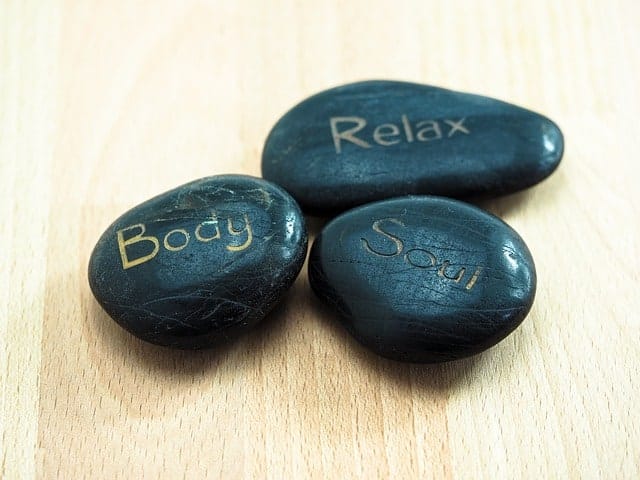One summer, many years ago, I signed up for a meditation class. I was twenty-two, newly out of college and searching for a spiritual awakening. I had no idea what to expect as I walked up to the old brick building and made my way into the small gym inside.
The class met every Monday at 7:15. Inside I found an eclectic crew of folks: an older, gray-haired instructor wearing threadbare clothes and a gentle grin; a young, muscular college student who looked like he belonged on the football field; a pair of yogis who were interested in all the ways meditation could bring them closer; a crew of young female college students; and me.
I remember sitting in that old gym, with dusty floors and a tall stack of mats pushed up against the wall beside me. It was dark, dreary, and void of windows. Why exactly had I signed up for this?
For the first class, the instructor asked us to hold out our palms and examine them. I looked at my hands like I’d never seen them before. I investigated how my skin looked in the dim light and how the deep lines ran from side to side.
Then the instructor pulled a grape from a small plastic bag and placed it gently onto the top of my palm. When every student held a grape in his or her hand, he told us to feel the weight of it, to look at it, and to imagine what it would taste like. Then he instructed us to place it gently into our mouths. “Roll it on your tongue,” our instructor told us. “Don’t bite it. Just feel it there.” It felt smooth and soft.
“Now,” the instructor said, “roll it off your tongue and onto your teeth and take one long, slow bite.” The grape squished from the pressure of my teeth, and cold grape juice poured from that tiny morsel.
“How did that feel?” he asked. “We put food into our mouths multiple times a day but never think about how that food feels?”
I struggled to meditate in that class. I sat with my legs crossed and my body at ease, but I found it difficult to relax. The floor was cold, and my butt ached.
“Whenever your mind wanders, bring your attention back to your breath,” our instructor gently reminded us. So I let mine wander and then dragged it back, over and over again.
After one session, the football player spoke of tranquil serenity. I felt nothing but annoyed in that particular class. I was agitated by my surroundings and struggled with a never-ending series of ideas that churned through my mind. I wondered how that giant football player could look like a zen master while I couldn’t stop thinking about my physical being and discomforts.
By the end of the class, participants were using words like calm and serene. How could everyone talk about finding peace and tranquility? What was I doing wrong? Why was I so easily distracted? Why couldn’t I focus on my breathing? I felt like an absolute failure.
But now I’m not so sure I failed. Perhaps the goal wasn’t to teach us to stay focused but rather to refocus each time distractions pull us away. “Whenever your mind wanders, bring your attention back to your breath.”
Life is distracting.
This is true about many aspects of life, but it’s particularly true about our finances.
You may be distracted by the tasty $25 meal a friend ordered at lunch, the 50% off sales popping into your inbox, or the visions of updated kitchens and bathrooms on HGTV.
How do we stay on track with our finances when it’s so easy to lure ourselves into spending money?
Breathe.
How do we block out the noises from advertising? How do we ignore well-meaning family members who tell us to buy a big house or host a huge wedding? Or from friends who tell us you only live once, so now is the time to rack up debt on endless adventures?
Breathe.
How do we keep our wallets in our pockets and our jealousy at bay? How do we remind ourselves that our tiny house keeps us just as warm and dry as the giant mansion down the street? How can we stay content at home while looking through a friend’s travel blog full of exotic locations?
Breathe.
How do we come to terms with the idea that a new business adventure isn’t worth the money if it means we are never at home with the ones we love? Or that our health and mental well being are just as important as all of the numbers in our financial spreadsheets?
Breathe.
To reach financial independence, we must ignore the distractions and refocus our energies. We often spend money without thinking about it. It’s so easy to pull out that credit card and run it through the register slot. We put food (like that simple purple grape) into our mouths without thinking about how it feels and spend mindlessly without thinking about how it impacts our long term goals for freedom and financial independence.
So we must breathe and refocus. We must limit our spending to the things that truly matter, but we must also think carefully about the life we want to live along the way.
We need to search for solace in the things that matter to us and disregard the people and things that don’t align with our values. Every day we will be tempted by those asking us to part with our time and money. We must think carefully about how we use those limited resources. We must stop and breathe.
Life is distracting. How do you refocus on your financial goals?
